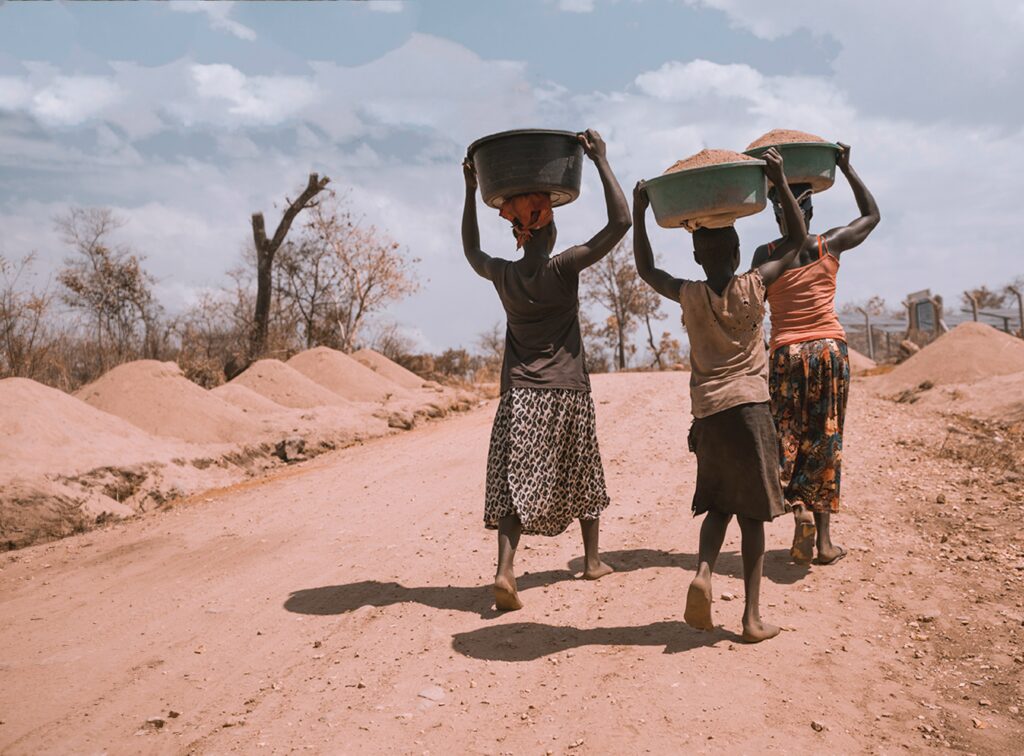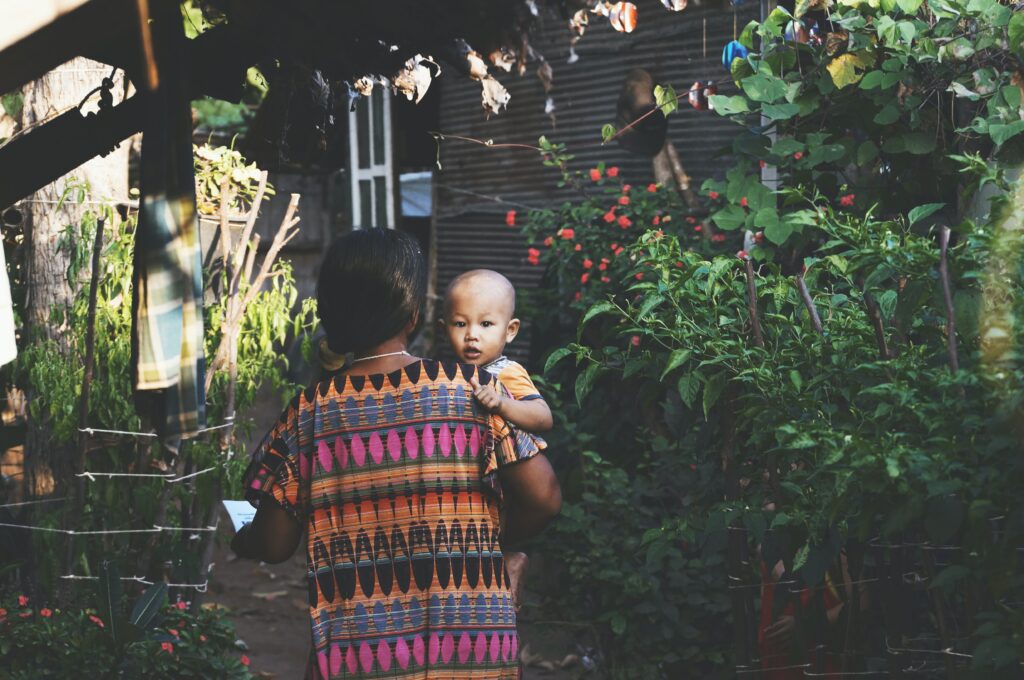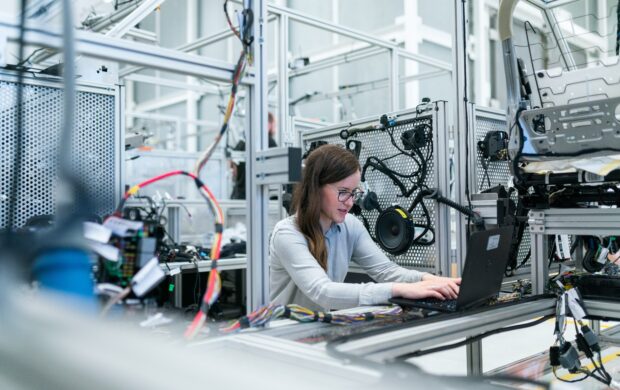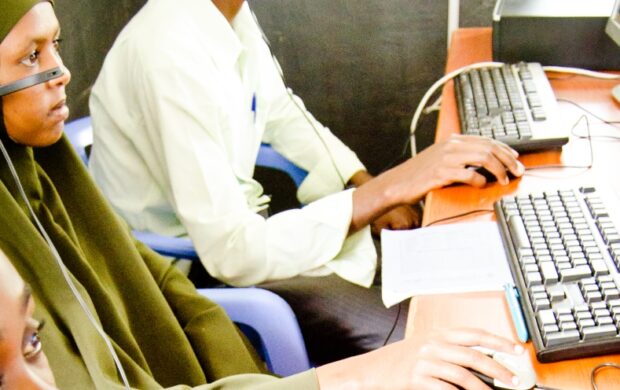Where can we invest now to reduce long-term inequality in the COVID-19 recovery?
COVID-19 both exposed and exacerbated cruel social divides. Across the world, not only have poor people suffered the greatest impacts, but they are most at risk from the long-term consequences of the pandemic – through loss of income and education due to the hiatus in many industries and an ongoing recession, and through the ongoing negative physical and mental health impacts of more limited or lost nutrition and living conditions.
Leading economists at the Centre for Disaster Protection and the World Bank argue that crises such as this can lead to spiralling cycles of inequality. Those hardest hit recover more slowly due to a greater loss in human capital and assets, and so are more vulnerable to future crises. What can funders, both public and private, do to prevent the worst outcomes of inequality across society? How can recovery strategies best support society’s most vulnerable to live decently again in the short-term and thrive in the future?
Where the need is greatest
The unequal impacts are well-documented. World Bank data indicates that a greater proportion of people have lost income in low-income countries: 77% of the population across four countries in Sub-Saharan Africa, compared to an average of 62% of households across 40 countries.
Poorer households face both immediate income loss and the long-term impacts of coping strategies, such as missing meals.
Even within low-income countries, income disparities make a big difference: in Ethiopia and Nigeria, children from the richest 20% of households were found to be much more likely to be engaging in any learning activity after school closures than the poorest 20%.

While lack of data masks the extent of the impacts, homelessness, overcrowding and inadequate housing conditions for millions of marginalized people have contributed to excessive, largely preventable death and suffering, says the UN Special Rapporteur on adequate housing.
Asides from wealth, the immediate risks and the long-term impacts of the crisis have been exacerbated by race, gender, education level and disability.
Death rates in the UK were six times higher among people with learning disabilities than the average – reflecting both a greater prevalence of health problems, and difficulties in following preventative measures. In the US, death rates among Black and Hispanic/Latino people aged 45-54 are at least six times higher than for whites; factors include greater occupational risks, reduced capacity for social distancing, health disparities and limited access to healthcare. Minority groups are also at greater risk of homelessness, which has been called North America’s ‘pandemic within a pandemic’. The UK’s Trades Union Congress reports higher levels of unemployment following the pandemic among BME workers: one in 12 was unemployed at the start of 2021, compared with just one in 22 white workers.
Women and those without college education are more likely to have stopped working than men and those with a college education. Women are overrepresented in many of the industries hardest hit by COVID-19, such as food service, retail and entertainment: 40% of all employed women – 510 million women globally – work in hard-hit sectors, compared to 36.6% of employed men. Women not only see a higher rate of job loss, but suffer ongoing impacts on employment levels and wages. Moreover, they tend to earn less and have fewer savings, and more likely to be burdened with unpaid care and domestic work, restricting their access to jobs.

Reports from around the world tell similar stories. In Hong Kong, where I am based, the most vulnerable have suffered disproportionately due to the loss of low-paying jobs, cramped living conditions, and heightened risk of exposure – particularly affecting the city’s foreign domestic helpers, who have little control over their exposure, and its low-paid cleaners, who are mostly aged 60-80. Like many others, the city is seeing a rise in homelessness as vulnerable workers lose their jobs as a result of social distancing measures.
Designing a just recovery
Much more could be said about the grave problems of inequality, but what are leading institutions and think tanks saying about ways to tackle it?
Recommendations by the likes of the World Bank, the World Economic Forum and McKinsey concur on a few priority areas to increase social equity and reduce vulnerability in the long run. Broad themes include the need to level the playing field for jobs and labour markets, increase access to healthcare and education, and invest in social safety nets, including access to housing.
Bridging the digital divide is crucial for all of this, both immediately and increasingly as automation and artificial intelligence continues to transform labour markets. And while we all need to be online, there’s wide recognition that face-to-face interactions and access to green space are essential for our emotional, mental and physical health.
The devil is in the detail, though. If these broad recommendations are to be effective, they demand particular attention through the lens of equity, with a focus on gender, race and disability. What does this mean, in practice?
Let’s have a brief (far from comprehensive) scan of recommendations in the three key areas for change I mentioned above: labour markets, access to health and education, and social safety nets.
Towards just labour markets
- The UN Conference on Trade and Development has called for income redistribution as the cornerstone of a better recovery, emphasising full employment and real wage growth. Key to this are public work and employer-of-last-resort programmes – in which the government employs anyone without a job who is ready, willing and able to work at a base wage. Cash transfers (such as universal basic income) are also important to reduce inequality, while fiscal policies should target full employment.
- Zia Qureshi, Director of Strategy and Operations at the World Bank, argues that we need to better harness the potential of technological transformation to foster inclusive economic growth in an increasingly knowledge-driven economy. He wants to see reform of patent regimes and stronger antitrust enforcement to ‘democratise’ the innovation system, so that it can serve broader social goals. He also argues that the tax system needs to stop favouring capital relative to labour in ways that destroy jobs through excessive automation. Meanwhile, workers need to be supported to keep mobile through new public-private partnerships for upskilling, while addressing persistent inequalities in training and education.
- McKinsey focuses on ways to address gender inequality, maintaining that taking action now could add $13 trillion to global GDP in 2030, compared with a gender-regressive ‘do-nothing’ scenario.
Specific recommendations to support women at work include: tax policies that encourage both spouses to work; family-friendly flexible programs at work; a professionalised and employer or state-funded childcare industry (also creating employment); access to basic infrastructure to reduce the time women spend on unpaid work (such as collecting water and firewood); and tackling social norms about childcare responsibilities. Recommendations to get women into work include promoting gender diversity in funding for entrepreneurs and eliminating biases in recruitment, alongside a focus on women-owned enterprises in stimulus programs.
Access to health and education
- Digital inclusion is key. McKinsey wants to see an end to gender stereotypes that inhibit women’s access to technology, from building skills to phone ownership. Digital ID systems that are simple and inclusive in their design can also unlock access to foundational services and help meet critical needs – such as this one, making Benin the fastest place to start a company. Service providers can also look at usage patterns through an equity lens to find out which solutions work best for women and under-served groups, and amplify these.
- Communities need to be empowered to develop and lead their own health and education solutions. UpLink, a digital crowd engagement platform launched by the World Economic Forum, features community-led health solutions such as the Mental Health Friendly Cities movement, and Noora Health’s Care Companion Program, that trains families in India and Bangladesh with high-impact medical skills. Enrol Yourself is a peer-to-peer learning accelerator that equips communities to structure and host their own education courses.
- The COVID-19 pandemic has disrupted access to family planning, sexual and reproductive health services. For women, these are all critical, basic health care. Family Planning 2020 is a cross-sector partnership hosted by the UN Foundation. It calls on governments, humanitarian actors and the private sector to work together to ensure access to sexual and reproductive health services, including contraception, intrapartum care for all births, emergency obstetric and newborn care, abortion care, clinical care for rape survivors, and prevention and treatment for HIV and other sexually-transmitted infections.
- Nutrition is a crucial factor in child health severely affected by the pandemic. The FAO seeks to expand social protection for women, children, informal workers, migrants and other underserved groups through programmes that integrate rural areas and particularly small-scale producers into shock responses, for instance through gender-inclusive access to advisory services, rural finance and recovery programmes, with particular attention to women-run agribusinesses and the promotion of inclusive value chains.
- Fair distribution of vaccines is a crucial starting point for the recovery. As Rosemary DiCarlo, UN Under-Secretary-General, says:
“As wealthier countries get vaccinated, the developing world – including countries already affected by conflict and instability – risk being left behind. This would be a catastrophic moral failure… It would also be a severe blow to peace and security.”
Social Safety Nets
- Zia Qureshi calls for an overhaul of social protection systems: “Traditionally based on formal long-term employer-employee relationships, they should be adapted to a job market with more frequent job transitions and more diverse work arrangements.” This means targeting the informal sector. According to the International Labour Organisation (ILO), 89% of informal workers in Latin American and the Arab States, 73% in Asia-Pacific, and 64% in Europe are “significantly impacted” by the pandemic, risking rising under-employment, in-work poverty, or unemployment. It calls for policies that protect informal workers and their families through providing income and food support, and prevent damage to the economic fabric of countries – while enhancing formal job opportunities and facilitating the transition to formality.
- The World Bank also calls for support packages to be tied to job creation and protection, targeting employees and not just employers.
- The UN Special Rapporteur on adequate housing, MIT Professor Balakrishnan Rajagopal, calls for a range of emergency and long-term measures including a moratorium on evictions against everyone, including non-nationals resident in a country and the encampments and tents of homeless people; a sharp increase in funding temporary housing and for the purchase or expropriation of empty or vacant property for permanent housing; increased access to water, hygiene and sanitation services for those living in unsheltered areas, including persons living in homelessness or informal settlements, and rent caps and subsidies for tenants and small-scale landlords, consistent with their needs and to ensure stability in the housing market.
Where we all can help
While these recommendations are largely aimed at governments and funders, we all have a role to play in addressing systemic inequalities. Perhaps the most important call to action for anyone embracing their power to take action today to ensure that those bearing the weight of long-standing socio-economic imbalances are included in decision-making at every stage and level of the recovery. For many of us, this also means developing a better understanding of systemic inequality and how we can address it in every stage of our work, to ensure the money goes into the hands that most need it, with maximum transformational power.
Read next from Anna Simpson:
Reading the waves: who’s making sense of narrative change?
Bring back the human: how working culture can support transformation
Building trust across borders in digital futures
You might also be interested in:
Now that we know more, can we do better? Aarathi Krishnan, Strategy and Foresight Advisor for UNDP, reflects on our collective learnings and unlearnings of 2020 and discusses the paradigm shift still required to help us move from proclamations of change to transformative change, and to redesign for fairer, more equitable, more just futures.


















Join discussion